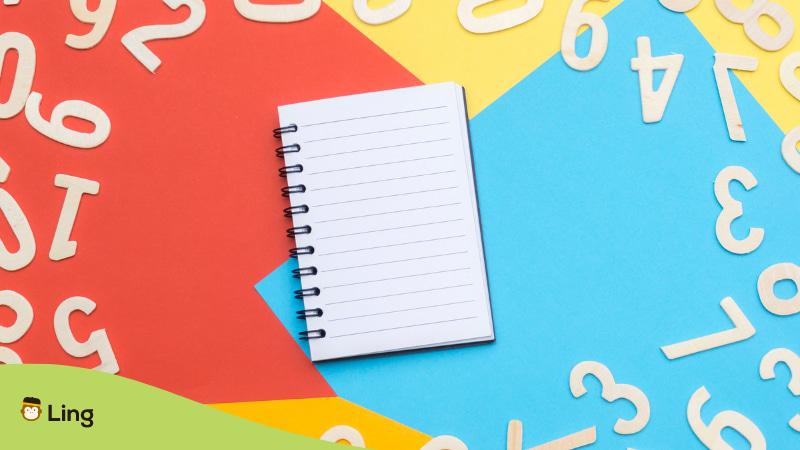Knowing how to tell time or ask about time is an important everyday life skill to have, no matter where you are in the world. You’ve got places to be, meetings to go to, trains, planes, or buses to catch, or you simply just want to know, what time is it?! Here’s an easy way on how to tell time in Japanese.
When you’re visiting or living in Japan, it’s a vital skill to tell the time in Japanese. The Japanese are sticklers for time, and everything in Japan runs like clockwork, and people are also expected to. It is considered rude and unprofessional to be late for anything, and no forms of transportation will wait for you, so you’d best be on time!
This article will cover all the different ways to tell the time in Japanese and give you useful basic vocabulary and Japanese time phrases to communicate about time in general. Let’s go learn Japanese!
Which Clock System Is Used In Japan?
Japan uses both the 12-hour clock system and the 24-hour clock system. The 24-hour clock is used mainly for transportation purposes such as train, plane, or bus schedules, so it’s important to learn both. In Japan, they use Arabic numerals for time, making reading much easier.
The 12 Hour Clock System In Japan
| English | Kanji | Hiragana | Pronunciation |
| 1 o’clock | 一時 | いちじ | ichi-ji |
| 2 o’clock | 二時 | にじ | ni-ji |
| 3 o’clock | 三時 | さんじ | san-ji |
| 4 o’clock | 四時 | よじ | yo-ji |
| 5 o’clock | 五時 | ごじ | go-ji |
| 6 o’clock | 六時 | ろくじ | roku-ji |
| 7 o’clock | 七時 | しちじ | shichi-ji |
| 8 o’clock | 八時 | はちじ | hachi-ji |
| 9 o’clock | 九時 | くじ | ku-ji |
| 10 o’clock | 十時 | じゅうじ | jū-ji |
| 11 o’clock | 十一時 | じゅういちじ | jū ichi-ji |
| 12 o’clock | 十二時 | じゅうにじ | jū ni-ji |
*Hiragana is a more widely used form of Japanese writing.
When speaking to others about time in general circumstances, you’ll use the 12-hour clock. When discussing or asking about transportation, you’ll need to use the 24-hour clock system.

The 24-Hour Clock System In Japan
Thankfully Arabic numbers are used to tell the time in Japan, which will make telling 24-hour times much easier. However, sometimes they may be presented in a slightly different way.
To read a 24-hour clock in Japan could be as simple as 15:40. See, easy! It’s just like it is in English. However, sometimes it may be presented as 15時40分.
If you refer to the symbols from important time vocabulary at the start of this article, you’ll notice that 時 (ji) means hour and 分 (pun) means minutes. Therefore 15時40分 means 15 hours 40 minutes.
To say 15時40分 in Japanese, you’d say じゅうごじ よんじゅっぷん (ju-go-gi-yon-jup-pun). You would state the hour first, followed by the hour value, the number of minutes, and end by stating minutes.
Learning Numbers 1-10 In Japanese
Presented in this table is how to read numbers in kanji. Kanji is a system of Japanese writing that uses Chinese characters. Also presented is Sino-Japanese. It also comes from Chinese origins. Sino-Japanese is used for numbers because native-Japanese numbers only exist up to 10.
| English | Sino-Japanese | Kanji | Pronunciation |
| 1 | いち | 一 | ichi |
| 2 | に | 二 | ni |
| 3 | さん | 三 | san |
| 4 | し、よん | 四 | shi / yon |
| 5 | ご | 五 | go |
| 6 | ろく | 六 | roku |
| 7 | しち、なな | 七 | shichi / nana |
| 8 | はち | 八 | hachi |
| 9 | く、きゅう | 九 | ku / kyuu |
| 10 | じゅう | 十 | juu |
How To Count Beyond 10 In Japanese
Once you get beyond 10, the Japanese use a different counting system where the tens and ones are added together to form a new number. For example:
11 is 十 plus 一 which makes 十 一 (10 + 1 = 11)
12 is 十 plus 二 which makes 十 二 (10 + 2 = 12)
Numbers such as 20, 30, 40, etc…, are formed similarly:
20 is 二 plus 十 which means two tens, hence 20.
30 is 三 plus 十 which means three tens, hence 30.
When combined to form a number such as 41, the numbers look like this:
41 is 四 plus 十 plus 一 which makes 四十一 (four tens + 1 = 41)

Important Time Vocabulary In Japanese
AM – 午前 – go-zen (morning)
PM – 午後 – go-go (afternoon)
Seconds – 秒 – byo
Minute – 分 – pun
Hour – 時 – ji
Half – 半 – han
Time – 時間 – ji-kan
How To Say Hours In Japanese
If you are expecting the arrival of a person or a package, you may be asked, How long until _ gets here? In this example, you may be asked to respond in 2 hours or 5 hours. Here’s how you can respond appropriately and to the point.
| English | Kanji | Hiragana | Pronunciation |
| 1 hour | 一時間 | いちじかん | ichi jikan |
| 2 hours | 二時間 | にじかん | ni jikan |
| 3 hours | 三時間 | さんじかん | san jikan |
| 4 hours | 四時間 | よじかん | yo jikan |
| 5 hours | 五時間 | ごじかん | go jikan |
| 6 hours | 六時間 | ろくじかん | roku jikan |
| 7 hours | 七時間 | しちじかん/ななじかん | shichi jikan /nana jikan |
| 8 hours | 八時間 | はちじかん | hachi jikan |
| 9 hours | 九時間 | くじかん | ku-jikan |
| 10 hours | 十時間 | じゅうじかん | juu jikan |
How To Say Minutes In Japanese
You may find yourself answering questions such as when will the movie start? Or when will the next train arrive? To answer these questions in Japanese, you’ll need to know how to say the numbers and terms for hours and minutes.
| English | Kanji | Hiragana | Pronunciation |
| 1 minute | 一分 | いっぷん | ippun |
| 2 minutes | 二分 | にふん | ni-fun |
| 3 minutes | 三分 | さんぷん | san-pun |
| 4 minutes | 四分 | よんふん | yon-fun |
| 5 minutes | 五分 | ごふん | go-fun |
| 6 minutes | 六分 | ろっぷん | roppun |
| 7 minutes | 七分 | ななふん | nana-fun |
| 8 minutes | 八分 | はっぷん | happun |
| 9 minutes | 九分 | きゅうふん | kyū-fun |
| 10 minutes | 十分 | じゅっぷん | juppun |
| 20 minutes | 二十分 | にじゅっぷん | ni-juppun |
| 30 minutes | 三十分 | さんじゅっぷん | san-juppun |
| 40 minutes | 四十分 | よんじゅっぷん | yon-juppun |
| 50 minutes | 五十分 | 分ごじゅっぷん | go-juppun |
How To Say Half An Hour In Japanese
Well, half an hour isn’t a phrase used in Japan. Instead, they use the symbol 半 to indicate half past or thirty minutes past the hour.
For example, if you wanted to express 1:30 in Japanese, simply add 半 after the hour.
- 1:30 = 1 時半 / Ichi Ji han (one hour half)
- 3:30 = 3 時半 / San Ji han (3 hour half)
How To Say Quarter Past Or Quarter To In Japanese
Like with half past, there’s no expression for quarter past or quarter to in Japanese. You would simply state the actual time. For example, 7:15 would be 7時15分 (shichi-ju-go-pun) or seven hours and fifteen minutes.
How To Say Seconds In Japanese
Although it’s likely a rare scenario where you would need to know how to refer to time in seconds, this information may come in handy.
| English | Kanji | Hiragana | Pronunciation |
| 1 second | 一秒 | いちびょう | ichi byo |
| 2 seconds | 二秒 | にびょう | ni byo |
| 3 seconds | 三秒 | さんびょう | san byo |
| 4 seconds | 四秒 | よんびょう | yon byo |
| 5 seconds | 五秒 | ごびょう | go byo |
| 6 seconds | 六秒 | ろくびょう | roku byo |
| 7 seconds | 七秒 | ななびょう | nana byo |
| 8 seconds | 八秒 | はちびょう | hachi byo |
| 9 seconds | 九秒 | きゅうびょう | kyuu byo |
| 10 seconds | 十秒 | じゅうびょう | juu byo |

Useful References To Time Of Day In Japanese
These nouns and phrases relating to times of day may help explain or understand when certain events are happening throughout any given day.
| English | Kanji | Hiragana | Pronunciation |
| morning | 朝 | あさ | asa |
| early morning | 早朝 | そうちょう | sōchō |
| sunrise | 日の出 | ひので | hinode |
| noon | 正午 | しょうご | shōgo |
| midday | 日中 | にっちゅう | nicchū |
| early evening | 夕方 | ゆうがた | yūgata |
| sunset | 日没 | にちぼつ | nichibotsu |
| evening / night | 夜 | よる | yoru |
| midnight | 深夜 | しんや | shin’ya |
Some Important Questions To Help You With The Time In Japanese
- What time is it? 今何時です/ Imananjidesuka?
- How long until the train arrives? / 電車が到着するまでの時間 / Densha ga tōchaku suru made dore kurai kakarimasu ka?
- When will the movie start? / 映画はいつ始まりますか / Eiga wa itsu hajimarimasu ka?
- What time are we meeting? / 何時に会いますか/ Nan ji ni aimasu ka?
- What time is lunch? / 昼食は何時ですか/ Chūshoku wa itsudesuka?
- When will I see you? / いつお会いしましょうか/ Itsu o ai shimashou ka?
Some Important Japanese Phrases To Help You Answer Questions About Time
- The current time is… / 現在の時刻は / Genzai no jikoku wa
- The train will arrive at… / 電車は到着します / Densha wa tōchaku shimasu
- The movie will start in… / 映画はで始まります / Eiga wa de hajimarimasu
- We will meet at… / で会います / De aimasu
- Lunch is at… / 昼食は / Chūshoku wa

Turns Out, Telling Time In Japanese Isn’t That Difficult!
It makes you wonder if learning Japanese as a language is just as easy. Well, it certainly can be! If you learn the Japanese language with Ling app, you’ll find it simple and fun.
With Ling app, you’ll learn everything from telling time in Japanese in real-life contexts, holding entire conversations, writing in Japanese, and learning proper pronunciation so you can sound just like a native speaker.
With only up to 15 minutes a day, you can be speaking Japanese (or any of the 60 plus other languages our app offers. Check it out now!
We hope we’ve given you enough examples to tell the time in Japanese. When you visit Japan, you will be able to communicate and not miss any appointments!
Download the Ling app on the Play Store or App Store and start your Japanese language journey soon!

















